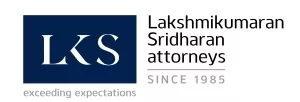- within Energy and Natural Resources topic(s)
- in India
- in India
- with readers working within the Retail & Leisure industries
- within Government and Public Sector topic(s)
Introduction
India, currently the fourth-largest economy in the world, is poised to become an economic superpower by 2047. Achieving this vision requires strengthening its economic foundation—particularly through industrial and service sector expansion, fostering indigenous technological development, and bolstering military and strategic capabilities. One of the pivotal enablers of this transformation is securing access to critical minerals.
Critical minerals are defined as a set of naturally occurring elements and compounds that have diverse irreplaceable industrial applications but confront supply-related vulnerabilities either in the form of their limited geographic occurrences or sourcing challenges1. Few such critical minerals are cobalt, niobium, selenium, etc. Critical minerals are indispensable to modern industrial economies. They form the backbone of technological advancement and are vital to ensuring energy security and economic resilience. From food processing to defence manufacturing, their applications are vast and strategic. Accordingly, building a resilient and sustainable supply chain for critical minerals has become a national priority.
Realizing the importance of critical minerals in securing national economic and technological independence, the Hon'ble Finance Minister, in her Union Budget 2024-25 speech on 23 July 2024, reaffirmed the Government's commitment to the Atmanirbhar Bharat Abhiyaan by proposing key policy measures to promote self-reliance in the critical minerals sector. She emphasized the strategic importance of minerals such as lithium, cobalt, copper, and rare earth elements in various sectors.
Customs & critical minerals
A major highlight of the Union Budget 2024-25 was the announcement of the National Critical Minerals Mission ('NCMM'). This was officially approved on 29 January 2025, and the Ministry of Mines formally notified the establishment of the NCMM vide Notification F. No. 28/15/2024-CMM-Part(1) dated 24 June 2025. It has been set up for an initial period of seven years (2024–25 to 2030–31).
Some of the key components of the NCMM, from customs perspective, are discussed below.
- Critical Minerals Partnership Agreements: India will proactively engage with resource-endowed countries to forge bilateral partnerships focused on Critical Mineral trade and investment, thereby ensuring long-term security of supply.
- Tariff Harmonisation through FTAs: To align with the World Customs Organization's ('WCO') tentative 2027 HS Code revisions, India will explore Free Trade Agreements ('FTAs') to streamline tariff structures for Critical Minerals.
- Duty-Free Recyclables: Import duties and non-tariff barriers on recyclable Critical Minerals and materials will be removed to foster domestic recycling, enhance raw material availability, and promote local value addition.
- Import Duty Elimination: Strategic exemptions from import duty have already been implemented (as discussed in the succeeding paragraphs), aimed at facilitating smooth inflow of essential Critical Minerals.
In June 2023, following inter-ministerial consultations and a comprehensive three-stage evaluation based on economic importance and supply risk, the Ministry of Mines published a list of 30 Critical Minerals2. However, separately, the Mines and Minerals (Development and Regulation) Act, 1957 ('MMDR Act') was amended to specify a new list of 24 critical and strategic minerals under its First Schedule and the said list has been taken into consideration under NCMM.
It is important to note that the NCMM currently considers only the 24 critical minerals listed under the MMDR Act. The said list is not a sub-set of the 30-mineral list from the Ministry of Mines. The 24 mineral list also, inter-alia, enlists some critical minerals like Glauconite and Platinum which are not enlisted in the 30-mineral list. The non-uniformity of the list of critical minerals has created an anomalous situation vis-à-vis grant of exemption on import of the same, as discussed in the succeeding paragraphs.
Duty exemption on import of critical minerals
At present the following exemptions have been accorded to critical minerals under Notification No. 50/2017-Cus. dated 30 June 2017 and Notification No. 36/2024-Cus. dated 24 July 2024:
- Basic Customs Duty (BCD) reduced to Nil on 25 critical minerals, including Antimony, Beryllium, Bismuth, Cobalt, Copper, Gallium, Germanium, Hafnium, Indium, Lithium, Molybdenum, Niobium, Nickel, Potash, Rare Earth Elements (REEs), Rhenium, Strontium, Tantalum, Tellurium, Tin, Tungsten, Vanadium, Zirconium, Selenium, Cadmium, and Silicon (other than Quartz & Silicon Dioxide).
- BCD reduced to 2.5% on Graphite and Silicon (Quartz & Silicon Dioxide).
- BCD reduced to 5% on import of ceria zirconia compounds [Tariff Item 2825 60 20], cerium compounds [Tariff Item 2846 10 90] for use in manufacture of washcoat, which are used in catalytic converters.
Considering the importance of critical minerals, an endeavor has been made to accord exemptions to critical minerals. However, there are a few areas of concern which need to be rectified.
It is important to note that concessional rates of duty have not been provided for all the minerals enlisted as Critical in the 24-mineral MMDR Act/30-mineral list i.e. the lists are not aligned. In certain instances, the exemption has been provided very selectively to certain specific compounds of the Critical Minerals like strontium sulphate/ oxides, hydroxides and peroxides of strontium, potassium hydroxide, nitrates of potassium. Minerals such as Phosphorus, PGE (specified in 30-mineral list), Glauconite (specified in 24-mineral list MMDR Act) have not been accorded any exemption. Also, cerium compounds for which exemption have been provided under Notification No. 50/2017-Cus. are not enlisted in the 24-mineral MMDR Act/30-mineral list.
While the intention of the Government is to provide exemption to the import of Critical Minerals and hence included 27 minerals under the scope of the exemption, yet the same was not useful as the scope was narrowed down for certain entries like Sr. No. 39 (Notification No. 36/2024-Cus. dated 24 July 2024) which covers 'Compounds, inorganic or organic of rare earth metals' of Heading 2846. Pertinently, rare earth metals are a subset of Critical Minerals. It is apparent that the goods covered under Sl. No. 39 shall cover only such goods classifiable under Heading 2846. Therefore, the products with critical mineral compounds other than rare earth metal compounds will be beyond the coverage of the said Notification as these do not answer to the description 'Compounds, inorganic or organic of rare earth metals' nor fall under Chapter 28 as described under Sl. No. 39 of the said Notification.
The import of Ceria Zirconia compounds for use in the manufacture of washcoat for catalytic converters of Tariff Item 2825 60 20 has been provided partial exemption of 5% BCD (Sl. No. 416 of Notification No. 50/2017-Cus. dated 30 June 2017). From the description, it is apparent that the intention is to cover such products irrespective of the Tariff Item mentioned therein which otherwise will render the entry otiose.
e.g.: There are certain mixtures of Cerium Zirconium compounds which merit classification under Heading 3824 and are used in the manufacture of washcoat for catalytic converters. Though the above products fulfil the description of Sr. No. 416, but they are not covered by Tariff Item 2825 60 20. Therefore, the scope of Sr. Nos. 416 has been unnecessarily reduced.
Conclusion
India's evolving critical minerals strategy is a timely and
crucial step in securing national economic and technological
independence. In the face of rising global trade protectionism,
such as China's recent export restrictions on gallium,
germanium, and graphite—widely perceived as a response to
U.S. tariffs—the need for domestic resilience in critical
minerals supply chains has become urgent. India must, therefore,
proactively fortify its position. While endeavors are made to
source the critical minerals domestically, until the domestic setup
becomes fully functional to cater to such needs, India is reliant
on the imports of the critical minerals.
The imports must be made tax-free, and the already existing exemptions must be suitably modified to ensure that the intended recipients are able to take advantage of the exemptions, and the intended purpose is achieved. The discrepancy in terms of minerals enlisted as critical minerals need to be done away with. It is the need of the hour to harmonize the list of critical minerals to maintain uniformity in terms of the benefits accorded vis-à-vis such minerals.
Also, the Government must ensure that India's HS codes for critical minerals are in sync with the WCO's 2027 revisions. This alignment is critical for negotiating favorable FTAs and maintaining regulatory coherence which will ensure fulfillment of the desired purpose.
Given the intricacies involved, industry stakeholders may consider filing formal representations before the Central Board of Indirect Taxes and Customs (CBIC) and the Ministry of Mines seeking clarifications and policy alignments. If overlooked, these gaps could have significant implications in the near future.
Footnotes
1. National Critical Mineral Policy, 2025
2.'Critical Minerals for India-Report of the Committee on Identification of Critical Minerals', as available here, last accessed on 3 July 2025 at 4:28 p.m.
The content of this article is intended to provide a general guide to the subject matter. Specialist advice should be sought about your specific circumstances.



